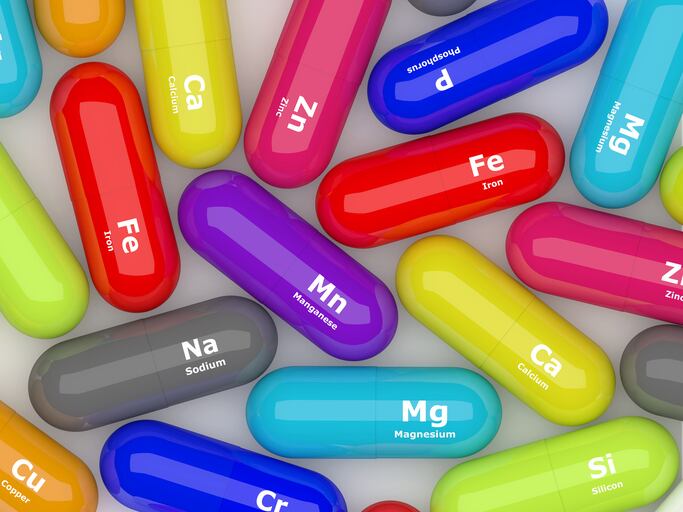The study’s sample population—physically active women who train recreationally for at least 120 minutes per week—may be a small niche, but “the current study does shows [that] aerobic exercise performance can respond to some type of increased micronutrient intake,” the researchers argued in their study, published in the Journal of the International Society of Sports Nutrition last week.
With a grant from the Gatorade Sports Science Institute, the researchers were led by Robert A. DiSilvestro, PhD, a professor of Ohio State University’s Human Nutrition program and president of Columbus Nutraceutical Formulations. He declared that that he has financial interest in a product developed based on this study.
Selecting the minerals
Iron, copper, and zinc are the three minerals that the researchers observed. “For active young adult women, intake of these three minerals may often fall below optimal amounts,” they wrote.

However, previous studies show how these minerals may improve aerobic performance through their functions in energy metabolism and combating oxidative stress.
The researchers’ hypothesis was that increased intake of these three trace minerals, combined with two ‘conditionally essential nutrients’ popular in sport nutrition (carnitine and phosphatidylserine), will improve aerobic exercise.
Comparing standard mineral versions with ‘more absorbable’ ones
There were two clinical trials, each with a different set of participants, to test reproducibility of the trial results.
For the first trial, 42 aerobically fit young women were randomly divided into three different groups in a double blind fashion.
One group received the ‘generic’ mineral complex (36 mg ferrous sulfate, 2 mg copper gluconate, 15 mg zinc glutonate) with 2 g carnitine tartrate (Carnipure by Lonza) and 400 mg phosphatidylserine (SerinAid by Chemi Nutra).
The next received the same combination, but with glycinate minerals, which the researchers argued were ‘more absorbable’—36 mg iron bisglycinate (branded as Ferrochel), 2 mg copper glycinate, and 15 mg zinc glycinate, all by Albion, as well as Carnipure and SerinAid.
The placebo group received only cornstarch. All the supplements (as well as placebo), in powder form, were split into two servings taken daily. Participants were able to mix it in their beverage of choice.
In the second trial, a new set of 34 participants, recruited with the same requirements as the first trial, were divided in two groups. The first received a similar glycinate mineral combination as group two in the first trial, but it had half the amount of carnitine, and was made in capsule form by Albion. The placebo control group for trial two also received a cornstarch capsule.
Results: Decreased running time in three miles
For both trials, participants performed aerobic exercises at the first clinical visit (stationary running and cycling), consumed supplementation for a month, and then returned to the clinic to perform the same exercises.
In both trials, researchers found that participants who ingested the glycinate mineral combination ran faster in three miles after the intervention period compared to the other groups. The mean time reduction was 54 seconds.
In the cycling test, distance covered increased for both the placebo group and the glycinate mineral group, which made the researchers conclude that this secondary outcome’s reliability was not as strong as the first. However, the glycinate mineral group experienced the biggest increase out of all groups.
“For other types of subjects, the micronutrient mixture used here may or may not show the same efficacy as seen in the present study,” the researchers wrote. “Also, it is not known if all 5 micronutrients given here were needed for the effect.”
“[But] these findings justify further research on various combinations of micronutrients on exercise performance.”
Source: Journal of the International Society of Sports Nutrition
Published online, https://doi.org/10.1186/s12970-017-0199-2
Enhanced aerobic exercise performance in women by a combination of three mineral Chelates plus two conditionally essential nutrients
Authors: Robert A. DiSilvestro, Staci Hart, Trisha Marshall, Elizabeth Joseph, Alyssa Reau, Carmen B. Swain, and Jason Diehl
